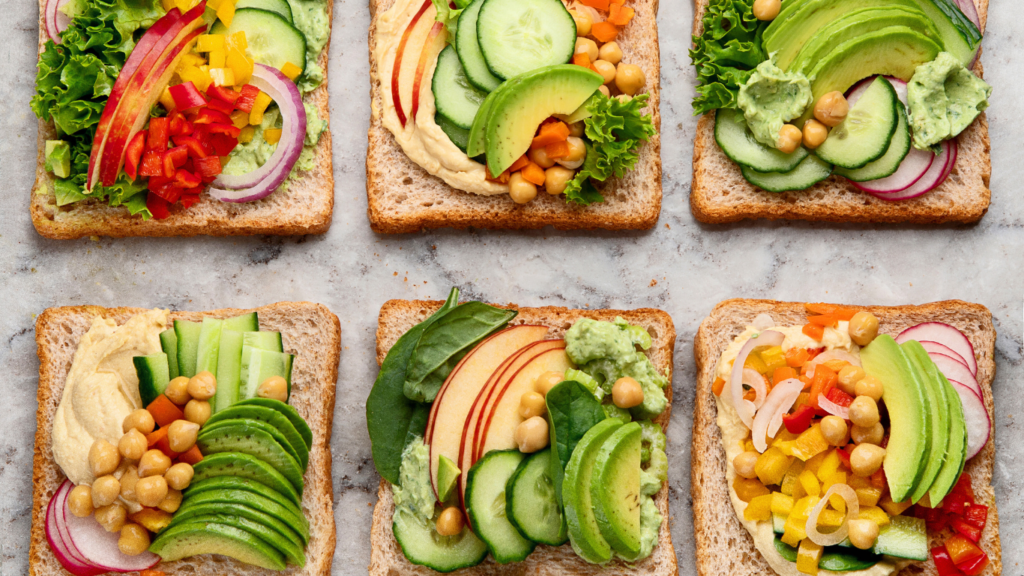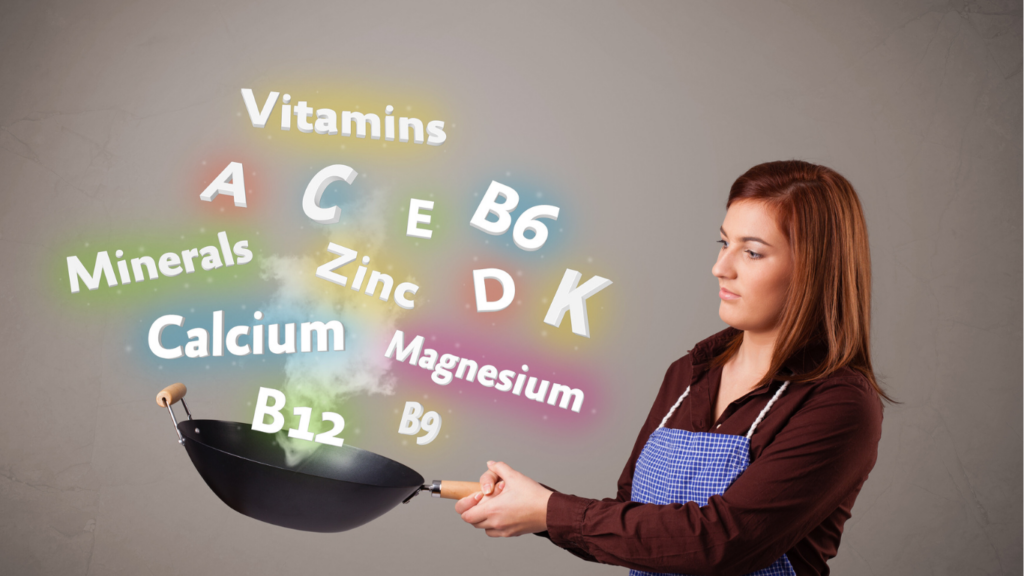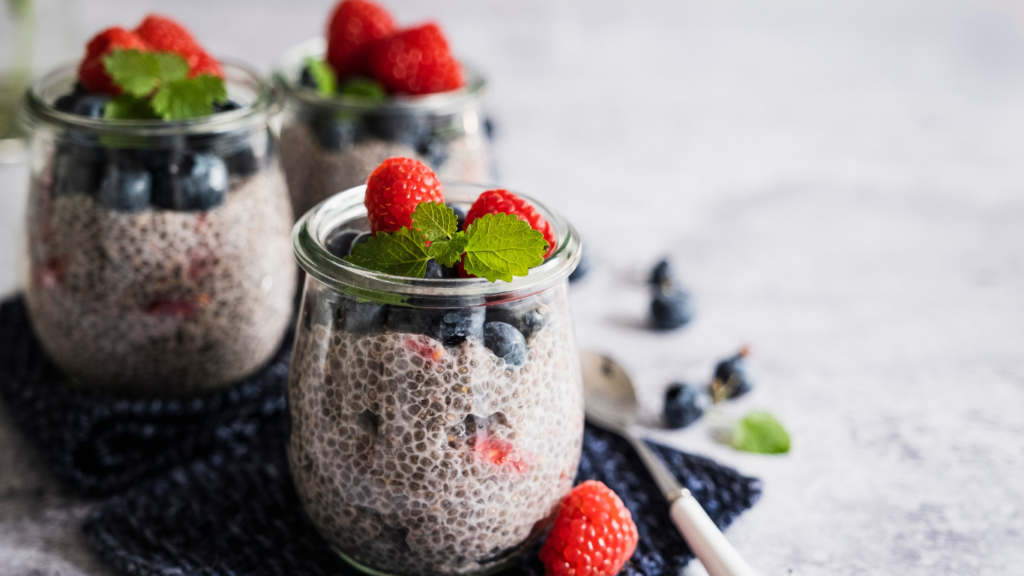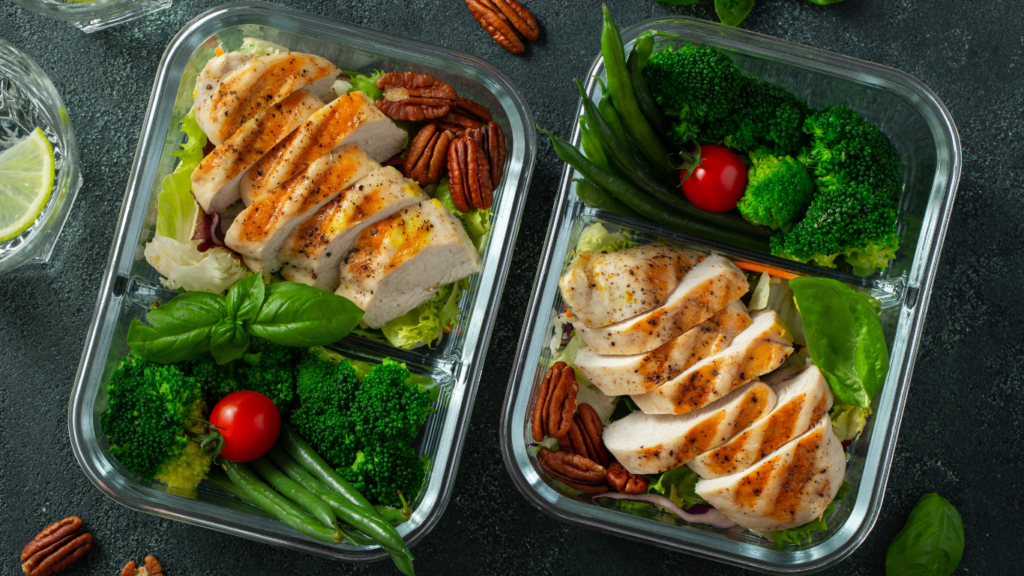Understanding Plant-Based Diets
Plant-based diets focus on foods primarily derived from plants. These include fruits, vegetables, grains, nuts, seeds, and legumes, offering essential nutrients for athletes.
What Is a Plant-Based Diet?
A plant-based diet emphasizes consuming whole, minimally processed plant foods. It limits or excludes animal products like meat, dairy, and eggs. Nutrients like complex carbohydrates, fiber, and plant-based protein support energy demands and recovery processes. This eating approach is adaptable, as it allows for flexibility in restricting or including certain animal-derived elements based on individual preferences.
- Vegan Diet: Excludes all animal products, such as eggs, dairy, and honey, relying entirely on plant-based foods. Vegans often focus on balanced protein sources like tofu, tempeh, and lentils to meet protein needs.
- Vegetarian Diet: Omits meat and fish but includes dairy and eggs. This option provides access to additional protein options, such as yogurt or cheese, while still prioritizing plant-based meals.
- Flexitarian Diet: Primarily plant-based but occasionally incorporates small amounts of meat, fish, or other animal products. It supports plant-forward eating without strict dietary restrictions.
- Pescatarian Diet: Plant-centered but includes fish or seafood. This provides omega-3 fatty acids while aligning with plant-based principles.
Balanced choices within these diets deliver critical nutrients like iron, calcium, and vitamin B12, which are important for athletic performance and recovery.
Nutritional Advantages for Athletes
Plant-based diets provide athletes with balanced and nutrient-dense options to support energy, recovery, and overall performance. These diets deliver essential macro and micronutrients critical for athletic success.
High-Quality Carbohydrates for Energy
Carbohydrates are the primary fuel for physical activity, and plant-based diets are rich in high-quality sources. Foods like sweet potatoes, quinoa, oats, and bananas provide complex carbs that release energy steadily. These complex carbs aid endurance by maintaining stable blood sugar levels during exercise. Additionally, fiber in plant-based carbs supports digestive health, ensuring efficient nutrient absorption.
Abundance of Vitamins and Minerals

Plant-based diets are packed with vitamins and minerals essential for muscle function, oxygen transport, and immune health. Dark leafy greens like spinach and kale provide iron and calcium, crucial for muscle contraction and bone density. Vitamin C from citrus fruits enhances iron absorption, while magnesium-rich foods, such as nuts and seeds, support energy production and reduce muscle cramps. Antioxidants from berries and colorful vegetables help combat oxidative stress caused by intense training.
Adequate Protein Sources
Athletes meet protein needs with varied plant-based foods, ensuring muscle repair and growth without animal products. Sources like lentils, chickpeas, tofu, and tempeh deliver high-quality plant protein with essential amino acids. Combining foods, such as rice and beans, creates complete protein profiles. Many brands also offer plant-based protein powders derived from peas, hemp, or brown rice to support higher protein requirements for intense training sessions.
Performance and Recovery Benefits
A plant-based diet offers significant advantages for athletic performance and recovery. Its nutrient-dense profile supports endurance, muscle repair, and reduces inflammation, ensuring athletes can train harder and recover faster.
Improved Endurance and Stamina
Plant-based diets enhance endurance because they’re rich in complex carbohydrates and antioxidants. Foods like oats, sweet potatoes, and bananas provide sustained energy, crucial for long-duration activities. Antioxidants from spinach and berries improve oxygen utilization and reduce oxidative stress, increasing stamina. Consuming these nutrients consistently ensures athletes can maintain peak performance without energy crashes.
Enhanced Muscle Recovery
Muscle recovery benefits from:
- high levels of vitamins
- minerals
- plant proteins
found in foods like lentils, chickpeas, and tofu. Vitamin C from oranges and bell peppers aids collagen production for tendon repair, while magnesium from almonds and pumpkin seeds promotes muscle relaxation. The diverse amino acids in quinoa and hemp seeds rebuild muscle tissue efficiently, making plant-based diets optimal for recovery after intense training.
Reduced Inflammation Levels
Plant-based diets help lower inflammation because they’re abundant in phytonutrients and omega-3 fatty acids. Flaxseeds, walnuts, and chia seeds, for example, contain anti-inflammatory compounds that ease joint and muscle pain. The absence of pro-inflammatory compounds in foods like red meat or processed items further supports recovery. Including turmeric and ginger amplifies these effects, helping athletes recover quickly and prevent chronic injuries.
Addressing Common Concerns
Plant-based diets raise questions about protein intake and potential nutrient gaps, especially for sports enthusiasts. I address these concerns with practical strategies and evidence-based solutions.
Meeting Protein Requirements
Athletes often worry about getting enough protein on a plant-based diet. I rely on diverse sources like lentils, chickpeas, tempeh, edamame, and tofu to meet my protein needs. For example, one cup of cooked lentils provides around 18 grams of protein, while 3 ounces of tempeh offer 15 grams. Combining legumes, grains, and seeds, like quinoa and chia seeds, ensures I consume all nine essential amino acids.
I also supplement my diet with plant-based protein powders during high-intensity training. These powders, derived from pea, brown rice, or hemp protein, deliver concentrated amounts of protein without animal-based ingredients. With careful planning, I can maintain optimal protein intake based on my workout requirements.
Avoiding Nutritional Deficiencies
Plant-based diets can lack specific nutrients like vitamin B12, iron, calcium, and omega-3 fatty acids. To prevent deficiencies, I incorporate fortified foods and diverse plant sources. For vitamin B12, I consume fortified cereals and plant milks or take a reliable supplement. Leafy greens, legumes, and dried fruits boost my iron intake, which I pair with vitamin C-rich foods like oranges to enhance absorption.
For calcium, I rely on fortified plant-based milks, kale, bok choy, and almonds. Omega-3s come from walnuts, chia seeds, and flaxseeds. By prioritizing a variety of whole foods and monitoring my dietary intake, I ensure my body receives all the nutrients it demands for peak athletic performance.





